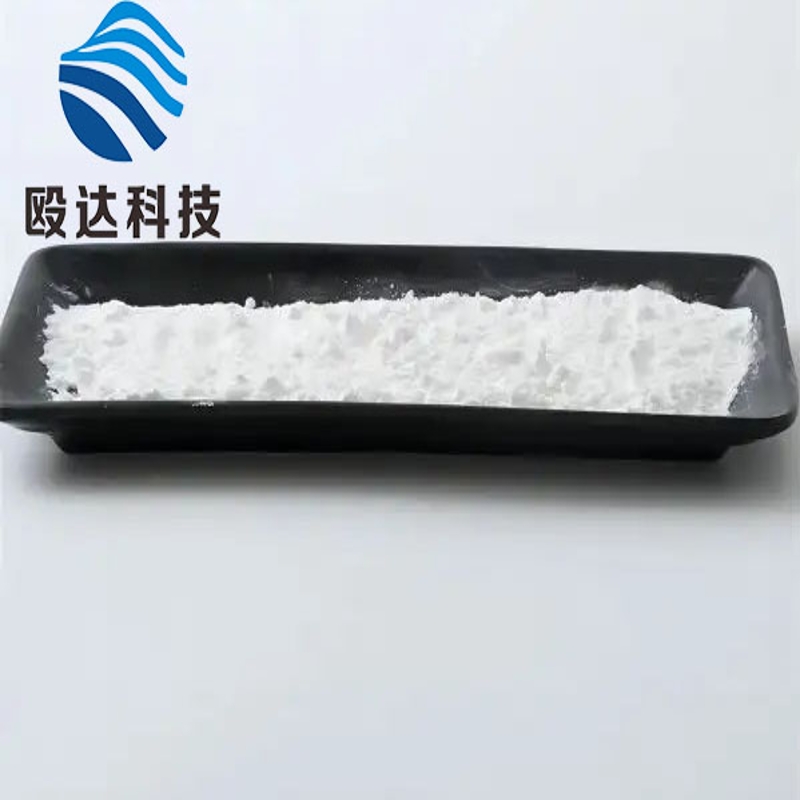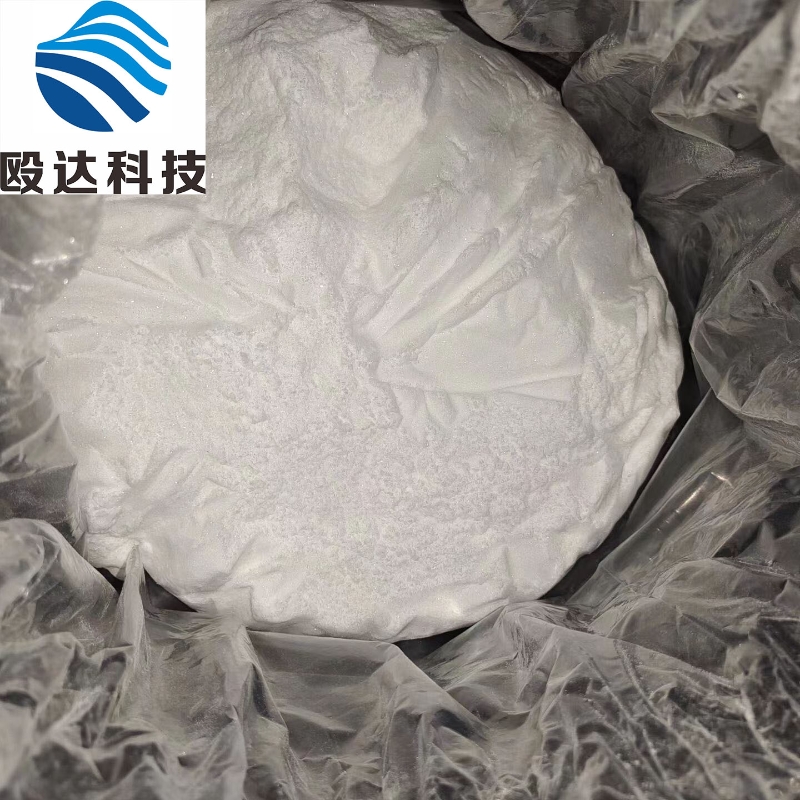-
Categories
-
Pharmaceutical Intermediates
-
Active Pharmaceutical Ingredients
-
Food Additives
- Industrial Coatings
- Agrochemicals
- Dyes and Pigments
- Surfactant
- Flavors and Fragrances
- Chemical Reagents
- Catalyst and Auxiliary
- Natural Products
- Inorganic Chemistry
-
Organic Chemistry
-
Biochemical Engineering
- Analytical Chemistry
- Cosmetic Ingredient
-
Pharmaceutical Intermediates
Promotion
ECHEMI Mall
Wholesale
Weekly Price
Exhibition
News
-
Trade Service
At present, many types of autoimmune diseases, including rheumatoid arthritis, multiple sclerosis, corneal transplant rejection and type I diabetes, are all immune-mediated inflammations.
Recently, "Stem Cell Translation Medicine" (Stem Cell Translation Medicine) published an article describing [1] that the application of mesenchymal stem cell transplantation in the treatment of immune and inflammatory diseases continues to increase, and summarized the current clinical development in this field.
Mesenchymal stem cells: immune regulation and anti-inflammatory
At present, the immunomodulatory properties of mesenchymal stem cells on lymphoid cells and myeloid cells have been well proven (Figure 1).
Figure 1 The picture comes from the literature [1]
Distribution of clinical studies on MSC treatment of immune inflammatory diseases
As of March 2021, there are approximately 1,000 clinical trials of mesenchymal stem cell therapy for immune and inflammatory diseases registered in the National Institutes of Health Clinical Trials Database (https://ClinicalTrials.
Figure 2 The picture comes from the literature [1]
It can be seen from these clinical trials that the most commonly used sources are bone marrow mesenchymal stem cells (BMMSCs) (35.
Picture from literature [1]
The development process of mesenchymal stem cells in the treatment of immune inflammation
The first case report of mesenchymal stem cell therapy for immune-related diseases was in 2004, for a child leukemia patient who developed steroid-resistant severe acute graft-versus-host disease after allogeneic hematopoietic stem cell transplantation ( GVHD) [2] .
Many preclinical studies have confirmed the use of mesenchymal stem cells to improve the implantation of hematopoietic stem cells.
Nowadays, the application of mesenchymal stem cells in the field of immune inflammatory diseases has expanded from GVHD to various autoimmune diseases.
In addition to mesenchymal stem cell transplantation, scientists also use mesenchymal stem cell-derived products to treat immune-related diseases.
Studies have found that cell-free products derived from mesenchymal stem cells also have significant effects on immune and inflammatory diseases.
references:
[1] Wang LT, Liu KJ, Sytwu HK, Yen ML, Yen BL.
https://pubmed.
[2] Le Blanc K, Rasmusson I, Sundberg B, Götherström C, Hassan M, Uzunel M, Ringdén O.
https://pubmed.
[3] Gomzikova MO, James V, Rizvanov AA.
https://pubmed.
At present, many types of autoimmune diseases, including rheumatoid arthritis, multiple sclerosis, corneal transplant rejection and type I diabetes, are all immune-mediated inflammations.
In the past, single or combined immunosuppressive therapies were mainly used, but these The therapeutic effect of the therapy is limited, and many patients cannot be effectively controlled or the disease is prone to relapse.
More and more scientists have used mesenchymal stem cells in the treatment of such diseases and have achieved remarkable results.
Recently, "Stem Cell Translation Medicine" (Stem Cell Translation Medicine) published an article describing [1] that the application of mesenchymal stem cell transplantation in the treatment of immune and inflammatory diseases continues to increase, and summarized the current clinical development in this field.
Mesenchymal stem cells: immune regulation and anti-inflammatory
Mesenchymal stem cells: immune regulation and anti-inflammatory
At present, the immunomodulatory properties of mesenchymal stem cells on lymphoid cells and myeloid cells have been well proven (Figure 1).
CD4-positive T lymphocytes are a key group of white blood cells that coordinate the overall immune response.
A large number of reports indicate that mesenchymal stem cells mainly regulate these adaptive cells from an inflammatory environment dominated by effector T cells to a microenvironment rich in Tregs through paracrine factors (such as TGF-β, NO, etc.
).
Mesenchymal stem cells are also believed to inhibit the activation of macrophages and/or induce differentiation into another M2 phenotype, which is essential for the elimination of inflammation.
Figure 1 The picture comes from the literature [1]
Figure 1 The picture comes from the literature [1]Distribution of clinical studies on MSC treatment of immune inflammatory diseases
Distribution of clinical studies on MSC treatment of immune inflammatory diseases
As of March 2021, there are approximately 1,000 clinical trials of mesenchymal stem cell therapy for immune and inflammatory diseases registered in the National Institutes of Health Clinical Trials Database (https://ClinicalTrials.
gov), of which 491 trials (47.
1 %) Used for immune/inflammation-mediated diseases (Figure 2).
The main indications for mesenchymal stem cell therapy trials involving immunomodulatory function include graft rejection (n=93), autoimmune diseases (n=129), and non-immune diseases with inflammatory components (n=269).
).
Figure 2 The picture comes from the literature [1]
Figure 2 The picture comes from the literature [1]
It can be seen from these clinical trials that the most commonly used sources are bone marrow mesenchymal stem cells (BMMSCs) (35.
8%) and adipose mesenchymal stem cells (AdMSCs) (16.
9%), as well as perinatal tissue-derived mesenchymal stem cells.
For the first time, mesenchymal stem cells derived from embryonic stem cells (ESC-MSCs; n=2) and mesenchymal stem cells derived from induced pluripotent stem cells (IPSC-MSCs; n=2) were used as well as exosomes or conditioned culture.
The test of mesenchymal stem cell-derived products of liquid (n=16).
A very obvious new trend is that the proportion of using allogeneic mesenchymal stem cells is increasing, at 61.
6% and 27.
8%, respectively.
Picture from literature [1]
Picture from literature [1]The development process of mesenchymal stem cells in the treatment of immune inflammation
The development process of mesenchymal stem cells in the treatment of immune inflammation
The first case report of mesenchymal stem cell therapy for immune-related diseases was in 2004, for a child leukemia patient who developed steroid-resistant severe acute graft-versus-host disease after allogeneic hematopoietic stem cell transplantation ( GVHD) [2] .
This successful case report triggered two large-scale trials for GVHD and quickly aroused interest in the use of mesenchymal stem cells to treat solid organ transplant rejection.
Many preclinical studies have confirmed the use of mesenchymal stem cells to improve the implantation of hematopoietic stem cells.
Mesenchymal stem cells express IDO and PD-L1 to respond to inflammatory cytokines (such as IFN-γ, TNF-α, and IL-1+), all of which are elevated in GVHD patients.
This is also an important mechanism for mesenchymal stem cells to treat GVHD.
Nowadays, the application of mesenchymal stem cells in the field of immune inflammatory diseases has expanded from GVHD to various autoimmune diseases.
According to statistics, 26 papers have been published describing the results of 29 mesenchymal stem cell tests for various autoimmune diseases.
Achieved encouraging results, such as mesenchymal stem cells promoting the healing of perianal fistulas; reducing mucosal inflammation in patients with ulcerative colitis, etc.
In addition to mesenchymal stem cell transplantation, scientists also use mesenchymal stem cell-derived products to treat immune-related diseases.
Studies have shown that mesenchymal stem cells themselves may undergo rapid apoptosis after administration.
After that, their immunomodulatory effects depend on the secreted paracrine factors, which play an important role in the immunoregulation of mesenchymal stem cells.
effect.
Therefore, more and more researches have turned their attention to mesenchymal stem cell-derived products.
Studies have found that cell-free products derived from mesenchymal stem cells also have significant effects on immune and inflammatory diseases.
Animal test results show that mesenchymal stem cell-derived products are effective against GVHD and many autoimmune diseases [3] .
references:
references:
[1] Wang LT, Liu KJ, Sytwu HK, Yen ML, Yen BL.
Advances in mesenchymal stem cell therapy for immune and inflammatory diseases: Use of cell-free products and human pluripotent stem cell-derived mesenchymal stem cells.
Stem Cells Transl Med.
2021 May 19.
Advances in mesenchymal stem cell therapy for immune and inflammatory diseases: Use of cell-free products and human pluripotent stem cell-derived mesenchymal stem cells.
Stem Cells Transl Med.
2021 May 19.
https://pubmed.
ncbi.
nlm.
nih.
gov/34008922/
ncbi.
nlm.
nih.
gov/34008922/
[2] Le Blanc K, Rasmusson I, Sundberg B, Götherström C, Hassan M, Uzunel M, Ringdén O.
Treatment of severe acute graft-versus-host disease with third party haploidentical mesenchymal stem cells.
Lancet.
2004 May 1;363 (9419):1439-41.
Treatment of severe acute graft-versus-host disease with third party haploidentical mesenchymal stem cells.
Lancet.
2004 May 1;363 (9419):1439-41.
https://pubmed.
ncbi.
nlm.
nih.
gov/15121408/
ncbi.
nlm.
nih.
gov/15121408/
[3] Gomzikova MO, James V, Rizvanov AA.
Therapeutic Application of Mesenchymal Stem Cells Derived Extracellular Vesicles for Immunomodulation.
Front Immunol.
2019 Nov 15;10:2663.
Therapeutic Application of Mesenchymal Stem Cells Derived Extracellular Vesicles for Immunomodulation.
Front Immunol.
2019 Nov 15;10:2663.
https://pubmed.
ncbi.
nlm.
nih.
gov/31849929/
ncbi.
nlm.
nih.
gov/31849929/







